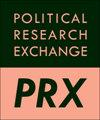With a little help from my friends: ministerial alignment and public spending composition in parliamentary democracies
IF 1.8
Q2 POLITICAL SCIENCE
引用次数: 14
Abstract
ABSTRACT The determinants of public spending composition have been studied from three broad perspectives in the scholarly literature: functional economic pressures, institutional constraints and party-political determinants. This article engages with the third perspective by placing intra-governmental dynamics in the centre of the analysis. Building on the portfolio allocation approach in the coalition formation literature and the common pool perspective in public budgeting, I theorize that spending ministers with party-political backing from the prime minister or the finance minister are in a privileged position to obtain extra funding for their policy jurisdictions compared to their colleagues without such support or without any partisan affiliation (non-partisan ministers). Via a system of equations on six spending categories using seemingly unrelated regressions as well as Prais–Winsten panel regressions on a sample of 32 parliamentary democracies over two decades, I offer mixed evidence for the impact of party-political alignment. While the relative share of four of the six budget categories systematically increases under the party-political alignment of the prime minister, the impact of finance minister alignment is only significant for the economic budget.在我朋友的一点帮助下:议会民主国家的部长结盟和公共支出构成
学术文献从三个广泛的角度研究了公共支出构成的决定因素:功能性经济压力、制度约束和政党政治决定因素。本文采用第三种视角,将政府内部动态置于分析的中心。在联盟形成文献中的投资组合分配方法和公共预算中的公共资金库视角的基础上,我的理论是,与没有这种支持或没有任何党派关系的同事(无党派部长)相比,得到首相或财政部长政党政治支持的支出部长处于为其政策管辖区获得额外资金的特权地位。通过一个关于六个支出类别的方程组,使用看似不相关的回归,以及对20年来32个议会民主国家样本的Prais–Winsten小组回归,我为政党政治结盟的影响提供了喜忧参半的证据。虽然在首相的政党政治结盟下,六个预算类别中的四个预算类别的相对份额有系统地增加,但财政部长结盟的影响只对经济预算产生重大影响。
本文章由计算机程序翻译,如有差异,请以英文原文为准。
求助全文
约1分钟内获得全文
求助全文

 求助内容:
求助内容: 应助结果提醒方式:
应助结果提醒方式:


